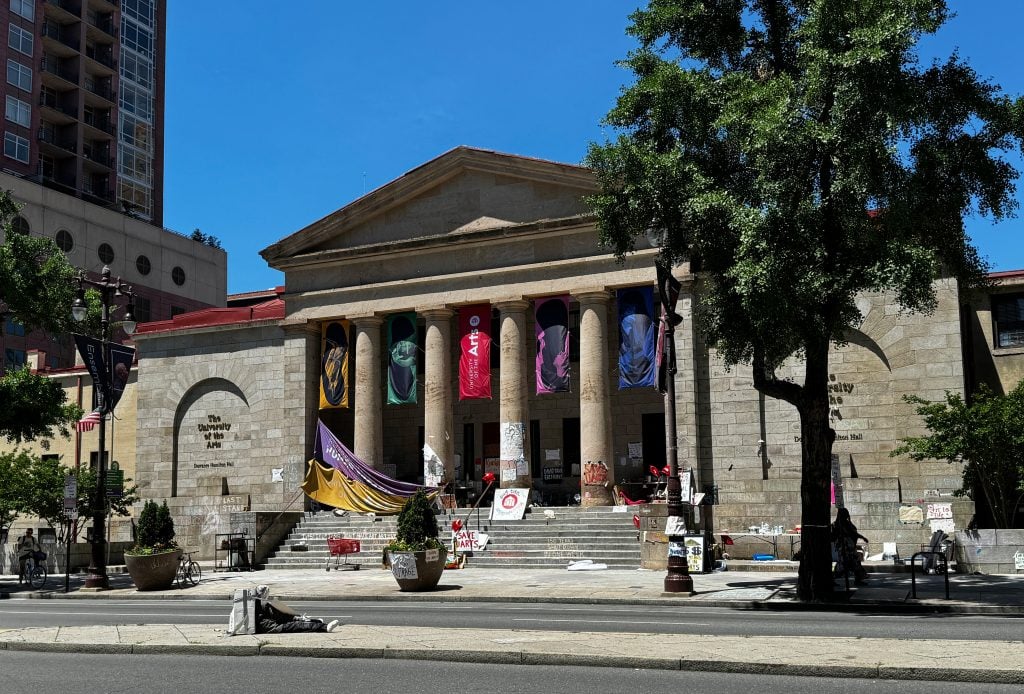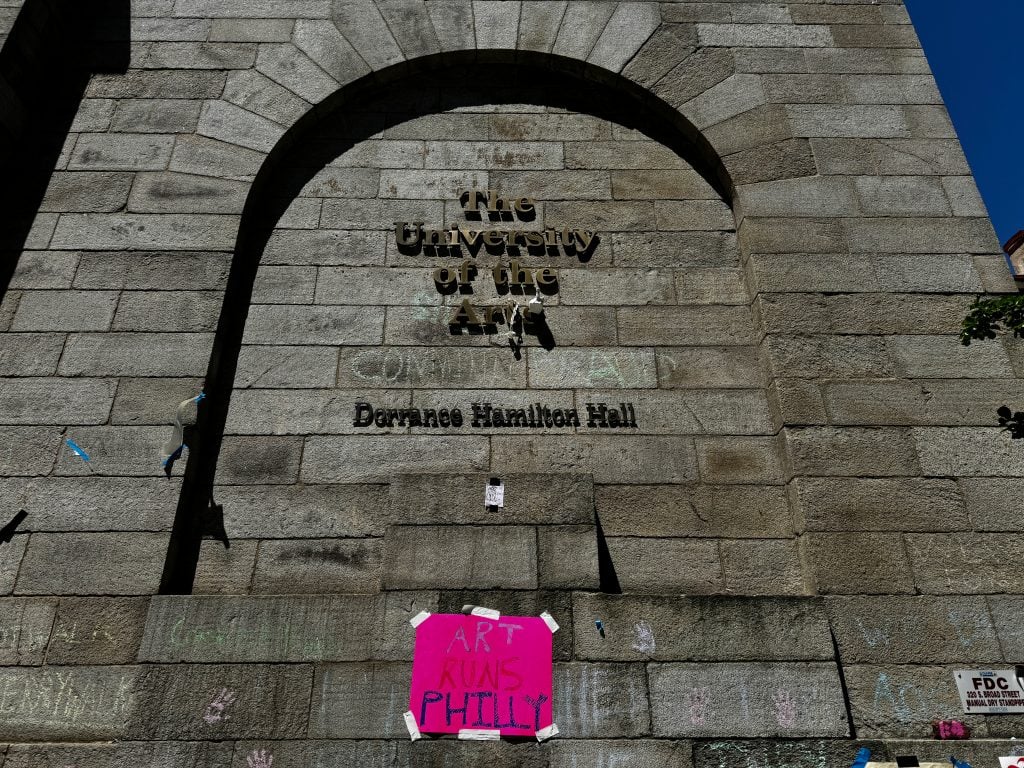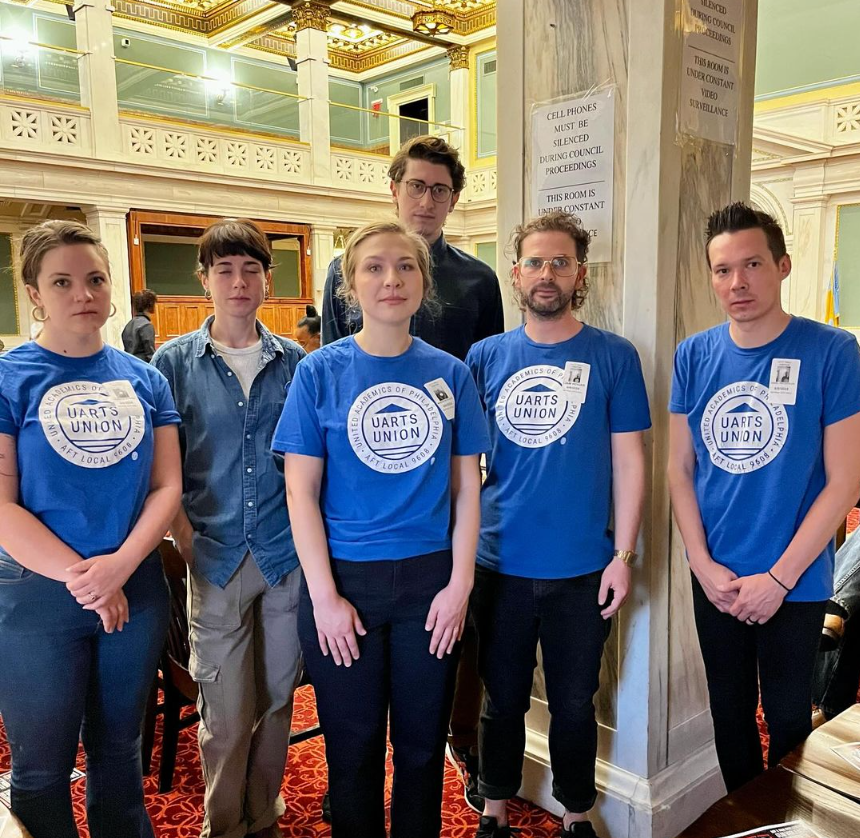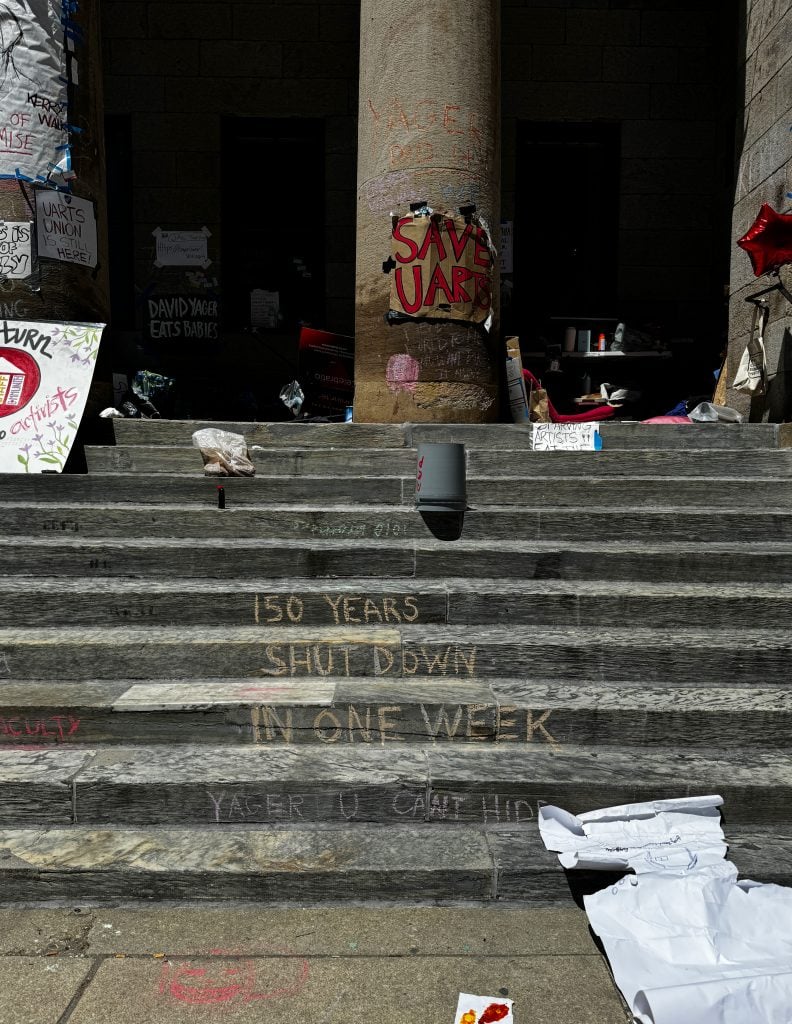Law & Politics
Closure of Philadelphia’s University of the Arts Triggers Attorney General Review
Around 600 faculty members have been fired following the school's abrupt closure.

Around 600 faculty members have been fired following the school's abrupt closure.

Adam Schrader

The University of the Arts in Philadelphia abruptly closed its doors at the end of the spring semester last week and fired around 600 faculty members, spurring a review by the office of Pennsylvania’s attorney general.
“We’re closed,” a statement on the university’s website read. “University of the Arts is closed as of Friday, June 7, 2024.”
Around 600 faculty and staff members learned that they were laid off effective immediately in a conference call on Friday, WPVI reported. Select others were given the choice to work until the end of the month.
But politicians and officials, from the local to the state level, have spoken out about the abrupt closure and called for investigations. All last week, students and alumni protested the closure outside the school.

The University of the Arts in Philadelphia after a protest on June 7. Photo: Min Chen.
Some faculty and students have also filed a federal class action lawsuit, documents obtained by Artnet News show. The claimants are alleging breach of contract, breach of implied contract, and unjust enrichment by the university administration, as well as fraud and violations of the Pennsylvania consumer protection laws.
Last week, the Philadelphia City Council passed a resolution authorizing its education committee to hold hearings to examine the sudden closing.
“The resolution states the hearing will look at the impact of this sudden closing will have Philadelphia’s higher education system and the negative impact of the UArts student body and staff,” the city council website read.
A spokesperson for the office of Attorney General Michelle Henry confirmed by email that it has oversight authority regarding nonprofits, charitable entities, or institutions which could include the university.
“We are very concerned by the sudden closure of University of the Arts, which has impacted students, staff, and the community,” the spokesperson said. “We are reviewing the circumstances of the closure and any transfer or loss of assets.”

University of the Arts union members at a Philadelphia city council meeting last week. Photo courtesy of United Academics of Philadelphia/Instagram
Meanwhile, state lawmakers Nikil Saval and Ben Waxman are spearheading efforts to help faculty obtain unemployment compensation and have created an online form for those requiring assistance.
“Immensely proud to join #UArts faculty, staff, and students this afternoon. This is not the end,” Saval said on social media after attending a rally supporting students and faculty on Friday. “The UArts community deserves support, resources, and justice. Our arts deserve investment. I’m with you in this fight to make it happen.”
Saval added in remarks to The New York Times that he’s calling on legislative hearings and using the state’s legislative committees to investigate the school’s downfall.

The University of the Arts in Philadelphia after a protest on June 7. Photo: Min Chen.
Kerry Walk, the president of the University of the Arts in Philadelphia, resigned her post after the renowned school announced it would soon close its doors. She had served as president for less than a year.
The school announced on May 31 that it would close by June 7, canceling scheduled summer classes, stating it has been “in a fragile financial state” with “many years of declining enrollments.”
“We could not overcome the ultimate challenge we faced: with a cash position that has steadily weakened, we could not cover significant, unanticipated expenses,” Walk and board chair Judson Aaron said in the statement. “The situation came to light very suddenly. Despite swift action, we were unable to bridge the necessary gaps.”